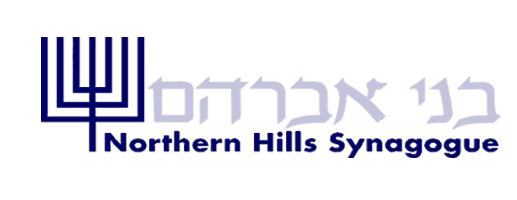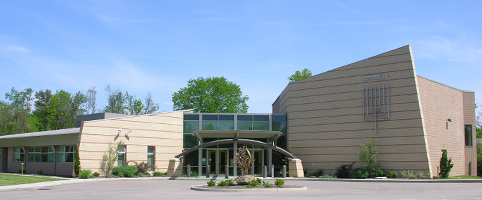 During the time that Northern Hills Synagogue did not have a full-time rabbi, we enjoyed the opportunity to learn from and with our fellow congregants who stepped up to prepare d’vrei Torah (literally “words of Torah”). About 12-15 congregants took turns presenting their thoughts about Shabbat Torah readings. In support of this effort, Sonia Milrod and Bea Opengart gave a talk on the topic: “You, Too, Can Prepare and Deliver a D’var Torah...” During the time that Northern Hills Synagogue did not have a full-time rabbi, we enjoyed the opportunity to learn from and with our fellow congregants who stepped up to prepare d’vrei Torah (literally “words of Torah”). About 12-15 congregants took turns presenting their thoughts about Shabbat Torah readings. In support of this effort, Sonia Milrod and Bea Opengart gave a talk on the topic: “You, Too, Can Prepare and Deliver a D’var Torah...”
The following are the notes from their talk:
How to read the Parsha?
- Get specific Parsha with name, chapter, verse #’s from Bev Shapero or whoever is in charge of assigning Parshiot in the Ritual Committee.
- Borrow Etz Hayim book from NHS.
- Google it on the web – you’ll come up with multiple translations and also sources of interest.
How to find a topic?
- What interests you from the reading? What associations come to mind?
- What might be connected to current events, events at NHS, events in your life?
- What are you curious about? What don’t you understand?
- Sign up for the Parsha of your Bar/Bat Mitzvah – What your memories?
- How has your reading / reflection on the event changed over time?
How do you find out what others have had to say?
• Rabbi Lord Jonathan Sacks always has interesting takes: http://rabbisacks.org/
• United Synagogue for Conservative Judaism (USCJ) has Torah Sparks online: http://www.uscj.org/jewishlivingandlearning/weeklyparashah/torahsparks/archive/default.aspx
• Do a Google search: “D’var Torah and Name of Parsha” – Lots of interesting stuff will come up... including from Chabad and other Orthodox sites – read widely. Very often a little spark can ignite a whole idea.
• Go to this website for many, many sources: http://www.wjcshul.org/index.php?option=com_content&view=article&id=58:dvar-torah
Processes for Gathering Ideas – this list is not in chronological order or prescriptive:
- Read/reread Parsha until questions/ideas begin to come to mind – start jotting down ideas.
- Read/reread commentaries from other sources and copy and paste (or write down) interesting passages/ideas from your web search/readings into one document – include the sources.
- Pick out/highlight 3-4 passages, phrases, ideas that resonate.
- How do these ideas connect to your own associations?
- Begin to nd a coherent theme / message / observation.
- Start writing! Continue going back to your sources when stuck. Don’t be afraid to cross out, change direction, or nd new themes as you write.
- Allow yourself time to think about your topic when you are not actually at your desk or computer writing – your best ideas may come while in the shower, taking a walk, or cooking a meal.
Non-Standard D’var – You could do your talk on something OTHER that the day’s Parsha •
- Memories of your or your children’s Bar/Bat Mitzvah and what it means to you now.
- Memories of another signi cant event/holiday in your life and what it means to you now.
- Personal stories of an act of Gemilut Hasadim or community involvement and what it means to you in terms of Judaism or Judaic values (e.g. soup kitchen, visiting someone who is ill or receiving visits while ill yourself, Interfaith Hospitality Network, or other communal involvement).
- Select a book of Jewish interest that you have read and prepare a talk based on it (NHS library is one source).
- A personal narrative about a person who has made a difference in your life and your sense of being Jewish.
- Ecology – What does it mean to be a keeper of the earth in terms of Jewish values to you?
Delivering Your D’var
- You are among friends!! Don’t be nervous.
- Practice reading at home and time your talk! We love you, but don’t want to listen for more than 15-20 minutes.
|
|
|
Home | About Us | Praying | Learning | Doing | Giving | Calendar | Contact Us | 
Copyright © 2021 by Northern Hills Synagogue. All rights reserved.
Please send comments or suggestions to the Webmaster |

